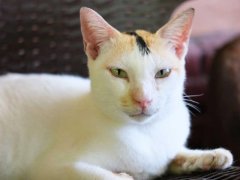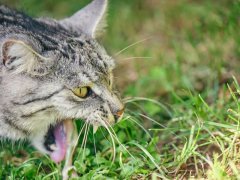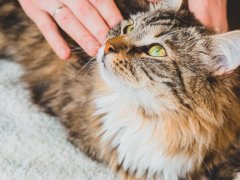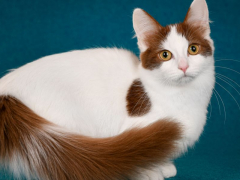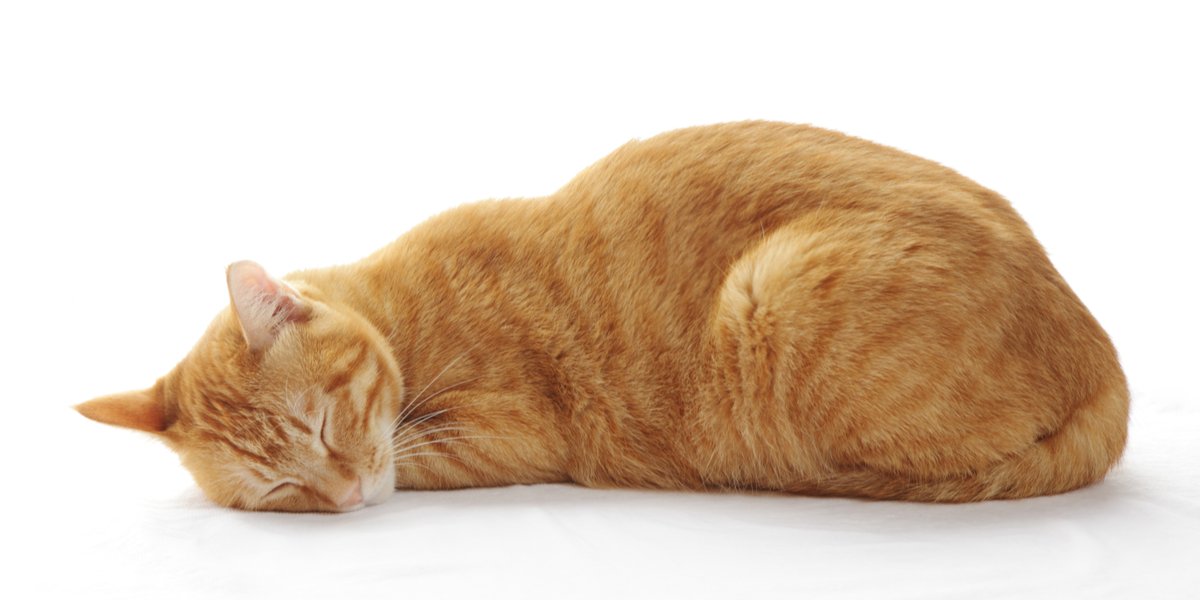
Do cats snore? As it turns out, they do! Although snoring is more common in dogs than in cats, some cats (like some people) snore when they sleep. If you hear your cat snoring while they sleep, you might wonder if it’s something to worry about. Cats snore for a number of reasons. Some cat snoring is normal, but sometimes snoring is a sign that something might be wrong with your cat.
Is It Normal for Cats to Snore?
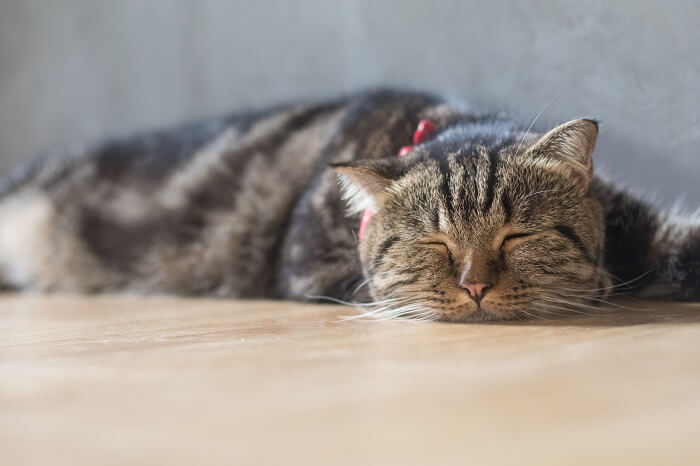
The snoring sound a cat makes occurs when the upper airway tissues vibrate as the cat breathes in and out.
In this article, get all the details on cat snoring, including why cats snore, whether or not it’s normal, and what to do if you hear your cat snoring.
Also Read: The 3 Types Of Heavy Breathing And What They Mean
The snoring sound that you hear coming from your cat is created when the tissues of the upper airway (the nose, back of the mouth, and throat) vibrate as the cat is breathing. Sometimes snoring in cats is random—something that happens occasionally due to the cat’s sleeping position. Snoring in cats might also be a result of the cat’s anatomy, or it might be caused by a health problem especially as they age. For the most part it does not indicate a medical issue unless accompanied by other symptoms such as difficulty breathing or changes in behavior
Possible Causes Of Cat Snoring
A cat’s weight might affect snoring. As is true with humans, cats that are overweight or obese are more likely to snore than cats that are lean. When a cat is overweight or obese, extra fat can build up around the neck, which can compress and compromise the airway, causing the cat to snore.
Additionally, certain cat breeds with flat faces (brachycephalic cats) have shorter bone structure and narrow airways. Brachycephalic cats might also have small nostrils and other quirky characteristics of their facial anatomy. Cats of these breeds might snore more than cats of other breeds and mixed breed cats. Some common brachycephalic breeds include Burmese, Exotic Shorthairs, Himalayans, Persians, and Scottish Folds.
Cats suffering from certain health conditions might also begin snoring. Any issue affecting the cat’s airway or breathing passages has the potential to cause snoring, including upper respiratory infections (viral, bacterial, or fungal), masses or growths that block the nasal passages, or a foreign object that has become stuck inside the nasal passage (like a blade of grass).
Some of the most common causes of cat snoring include:
- Allergies
- Brachycephalic cats (pushed-in face)
- Chronic nasal inflammation
- Elongated soft palate
- Foreign object lodged in the nasal canal
- Obese or overweight cat
- Polyps or tumors blocking the nasal canal
- Rhinitis (inflammation and swelling of the nasal mucous membranes)
- Sleeping position
- Small nostrils
- Upper respiratory infection
Also Read: The 7 Most Adorable Flat-Faced Cat Breeds
When To Call The Vet
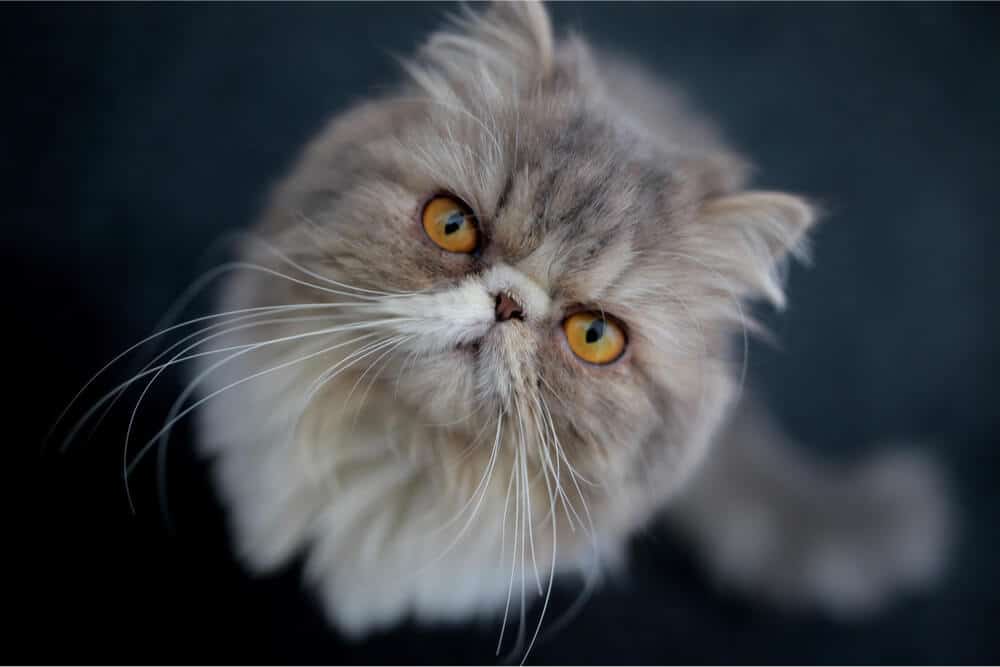
Cats with flat faces like this Persian are more likely to snore because of their smaller airways and nostrils.
If you hear your cat snoring and it’s the first time, your cat might have just gotten themself into a strange sleep position. Sometimes a cat’s sleeping position can angle things in such a way that the cat snores a little. If this is the case, and you see no other signs of illness or difficulty breathing, you might never hear your cat’s snore again, or the snoring might happen very infrequently.
Some reasons for cat snoring are harmless, but other things that trigger snoring can be cause for concern. If your cat is snoring and you’re wondering if you need to take them to the vet, think about how long your cat’s snoring has been going on, what it sounds like, and whether your cat is showing any other symptoms of ill health.
Duration
Has your cat always snored a bit, or is the snoring something that seemed to pop up overnight? Some cats are naturally snorers and it causes no harm. If you’re not sure how long your cat has been snoring, it never hurts to get your cat checked out just in case.
Sound
Is your cat snoring lightly or is the snoring very loud? When your cat is snoring, does she sound as if she’s having respiratory problems, like a hard time breathing? Snoring that is loud or sounds labored could signal something abnormal that needs to be checked out by a vet.
If you notice any increase in the volume or intensity of your cat’s snoring, or if your cat seems to struggle to breathe (whether asleep or awake), you should definitely make an appointment with a vet.
Other Symptoms
In addition to snoring, is your cat otherwise acting ill or uncomfortable, or have you noticed any unusual behavioral changes? Is your cat displaying any panting, rapid breathing, wheezing, sneezing, coughing, or nasal discharge when awake? Any type of respiratory problem in a cat needs veterinary attention and care.
Also Read: Cat Obesity Chart: Find Out if Your Cat is Obese
Treatment
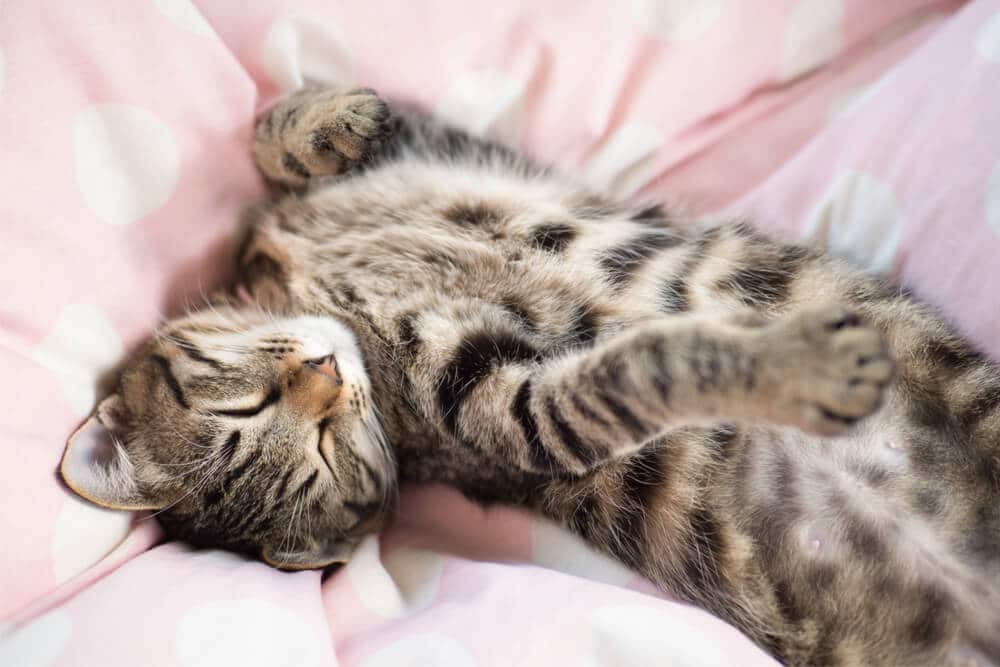
Your veterinarian might recommend using a humidifier in the room where your cat spends the most time sleeping.
If your cat’s snoring is caused by a medical issue like a respiratory illness or nasal polyps, treating the underlying problem might resolve the snoring. Treatment might involve medications or even surgery, depending on the issue.
Cats that are overweight or obese should lose weight, not only to prevent snoring but also for their overall health. Cat owners should work with a veterinarian to develop a safe weight-loss program that incorporates dietary changes and exercise.
Also Read: 5 Common Causes Of Weight Gain In Cats
For cats with persistent snoring that can’t be addressed medically, your veterinarian might recommend using a humidifier near your cat’s sleeping area to help moisten the airway and reduce snoring.
